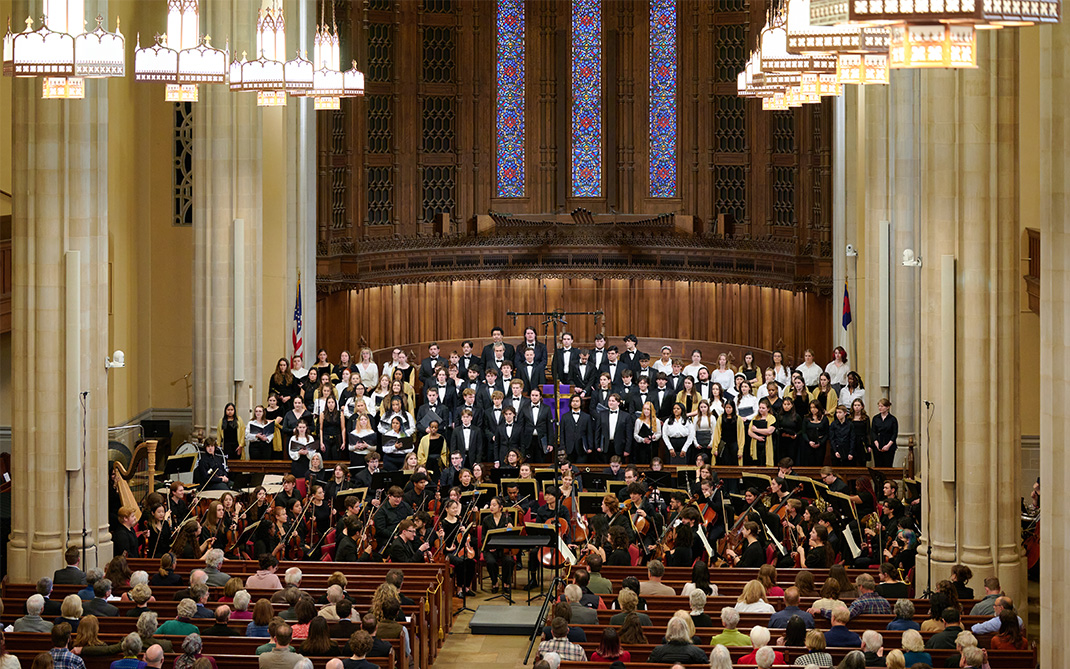Film acting, stage acting and adapting to new mediums
Stage or film? There used to only be two options for actors. But in a world of ever-changing mediums—of entertainment that ranges from theater to digital-only productions—it’s more important than ever to equip young actors with the skills and abilities to act in many settings.
Although some of the fundamentals of acting are the same—creating a character, moving a plot forward—many differences exist between stage and screen, says Dean of Drama Scott Zigler. In stage acting, use of language is often the primary mechanism to convey plot and character. But in television and film acting, actors must know how to play for the camera, which picks up more subtleties of the face and the body.
Below, Zigler helps to break down the difference between film acting, stage acting and actor training for the future:
Speaking and mannerisms
“On stage, often the words and how we say them are paramount,” Zigler says. “In acting for the screen, you have to think about how the story is being told through the way the camera will see it.”
For instance, mannerisms that read well on camera might not translate when a performer is on stage. “There are all sorts of things one does in acting for the camera that are too small for the stage, whether it’s a look or a shrug of the shoulder. The camera magnifies everything,” he says.
“If you think about great film acting performances, in some of the most powerful scenes, the actor isn’t speaking,” Zigler says. By contrast, memorable stage performances often stand out for the delivery of a great line or monologue.
Versatility
With so many mediums of entertainment, it’s vital for acting students to learn versatility, Zigler says. Today actors are going back and forth between acting for television, film, stage and new media. “Most students today hope that they will have a career that includes a mix of many platforms, and it’s our job to prepare them for that.”
Most students today hope that they will have a career that includes a mix of many platforms, and it’s our job to prepare them for that.
Dean of Drama Scott Zigler
New skills and training
Among the strategies to better equip students at UNCSA is a new emphasis on educating students through an on-camera curriculum, which will teach on-camera skills from year one. Historically, on-camera skills were taught toward the end of a students’ education, Zigler says. “With this approach, our students will be exposed to on-camera training all four years, with faculty across disciplines integrating it into their curriculum.”
Zigler is developing this new approach, teaming with his long-time colleague Bob Krakower. Widely regarded as one of the top acting teachers and coaches in the industry, Krakower has worked with Golden Globe, Emmy and Tony nominees.
Enhanced on-camera training will equip students to be able to jump from one form of acting to another, including generating work of their own.
“We have to train students in the classical acting skills, like how to move, to be heard, to form character,” Zigler says. “But if we can also teach them about how a camera works, about dramatic theory and narrative structure, we can graduate a new generation of actors who aren’t just doing what my generation did in waiting to get signed by an agent and then waiting for the agent to find them work… but ones who are entrepreneurial and creating their own work that makes networks and new media come looking for them.”
So you wanna be an actor?
Explore the School of Drama.
August 23, 2017




